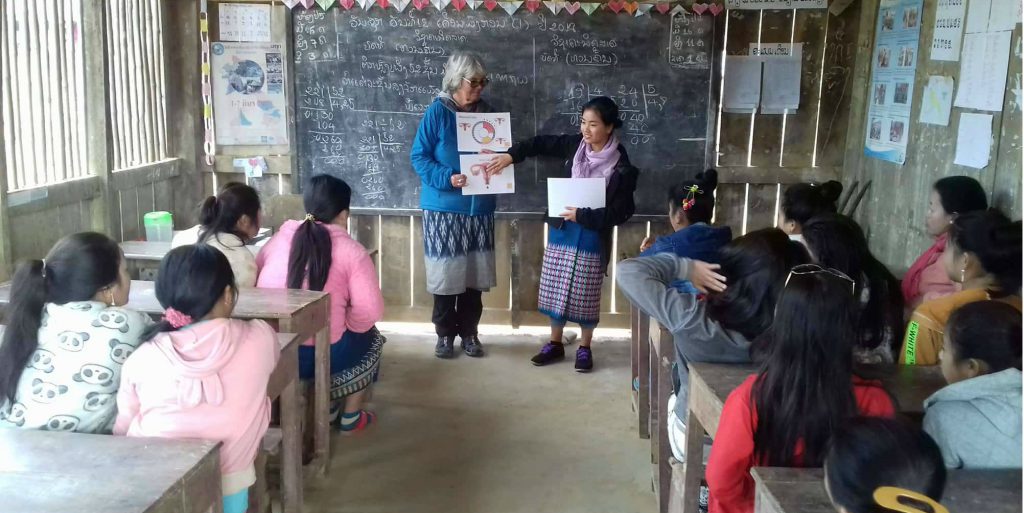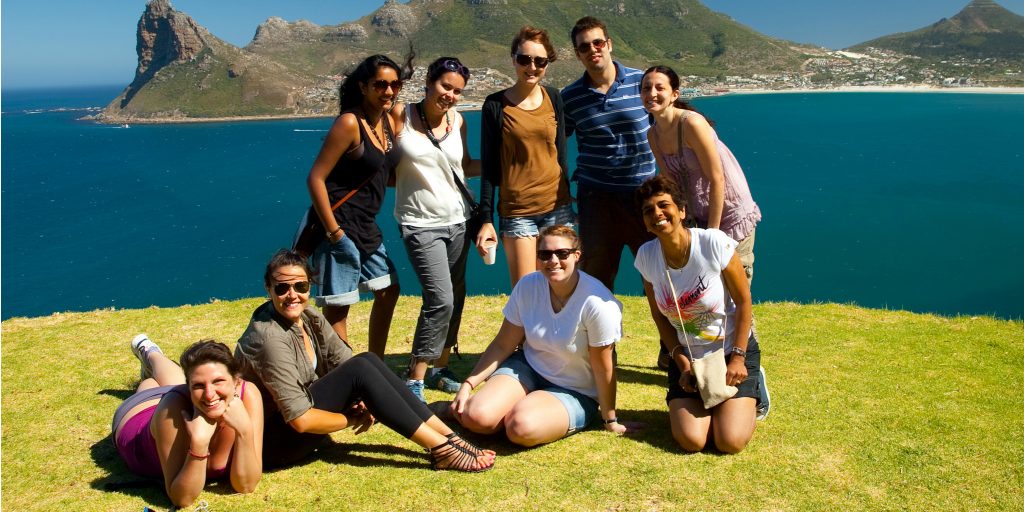Explore the different types of peccaries found in Costa Rica, as well as their importance in the local ecosystem, habitats, behavior, and social structure.
GVI
Posted: May 10, 2023

GVI
Posted: April 20, 2023
A gap year doesn’t have to be a year spent doing nothing. In fact, a structured gap year can be instrumental for your personal development and focusing your future plans.
With a little planning and motivation, you can use your gap year to gain work experience, save money, travel, volunteer, or all of the above. Whichever road you take, a gap year is the ideal time to think about your personal and long-term goals.
You’re bound to hear a host of opinions on why taking a gap year is a good or bad idea, which can make such a big decision more difficult.
To help you decide whether or not delaying your formal schooling is a good decision for you, we’ve put together some of the advantages and disadvantages of taking a gap year.
After years of schooling, you’re probably excited to take a break from studying. But taking a gap year means you get to change up your routines and even location, and turn that downtime you might crave into an adventure with purpose.
A gap year internship will allow you to get hands-on experience and be mentored by professionals in the field.
Getting out into the field to gain practical experience is the best way to find out what works for you. Gap year volunteer programs or internships offer you the chance to experience what certain careers look like in a real-life context.
Spending a few weeks on an island in Seychelles while you help carry out research for marine conservation, for example, makes for a great change of pace from studying, and is a lot more informative than any careers fair.
You’ll get hands-on experience and be mentored by professionals, so you can use this opportunity to ask them what it’s really like in their chosen profession.
Make sure you choose a program with a cause that interests you. That way you’ll find out whether you can turn your passion into a viable career.
All the activities you enjoy on a GVI program during your gap year are character- and career-building. That means they’ll look impressive on your resume.
Volunteer activities, additional languages, practical work experience and even international travel – will all hold weight when the time comes to submit a college or job application.
Travelling or volunteering overseas shows you have practical competencies, as well as the initiative to break away from traditional schooling.
Plus, learning about different cultures and countries builds empathy, tolerance and independence. These are all valuable qualities no matter which field you find yourself in.
It’s hard to choose exactly what you want to do straight out of high school. In fact, up to 36% of college graduates wish they had taken a different major, according to a survey conducted by Gallup and Strada Education Network.
Taking a gap year is like hitting the pause button on life before committing to college. It’s a chance to take a breather, gather your thoughts, and get some perspective. During your gap year, you can dabble in different things, learn new skills, and explore your interests. Whether you’re unsure about what to study or simply need some time to recharge, taking a gap year can be a fun and exciting way to prepare for the next chapter of your life. So why not embrace the vibe and take a year to do something a little different? Who knows where it could take you!
Gaining career experience during your gap year can be a game-changer. You can develop new skills, learn more about your desired field, and experience different work environments and cultures. Plus, having some real-life work experience under your belt can give you a competitive edge when it’s time to apply for jobs after graduation. You’ll have a better understanding of what employers are looking for in candidates and what it takes to succeed in your chosen career. Plus, gaining career experience can help you build a professional network, make valuable connections, and open up new job opportunities you may not have known existed.
A gap year isn’t all about play – you can fit some work in there too. Working for part of the year will give you a chance to take responsibility for your finances and save up for college.
This will help ease the financial burden of student loans and it’s also a great time to start learning about budgeting and saving. You can also set money aside for travel, for an extra rewarding year.
Going to college is a big step, especially if you’re moving away from home for the first time, or going to a college where you don’t know anyone. A gap year can equip you with skills to help you cope with these changes.
Soft skills such as independence and self-knowledge are only acquired through experience. A gap year program gives you the chance to slowly develop these traits and build your confidence. You could find yourself managing different types of social situations, meeting new people, learning to overcome language barriers, and having to find your way around unfamiliar places.
A well-planned gap year can also help students stand out to college admissions committees. According to U.S.News, “Gap years – because they give students a broader sense of the world and their place in it and how they can contribute – help to supply and empower students with the kind of motivation and purpose that can animate their entire college experience.”
Once you graduate and kick off your career, you may never get the chance to take a whole year off again.
According to research by the Gap Year Association,”The highest three rated outcomes of gap years is that of gaining “a better sense of who I am as a person and what is important to me” followed by “[the gap year] gave me a better understanding of other countries, people, cultures, and ways of living” and “[it] provided me with additional skills and knowledge that contributed to my career or academic major.”
The chance to travel will satisfy any nagging wanderlust you may be feeling. At the end of your gap year, you’ll be able to concentrate on your studies, instead of dreaming about travelling the world.
Gap year volunteer programs are an ideal way to experience travel and adventure in a safe and structured environment. You can choose from gap year programs in Africa, Asia, Australasia, Europe or Latin America.






You might find that not everyone is supportive of you taking a gap year. Your parents might worry that it means you’ll never go to college. Your teachers may be concerned that you’ll lose the momentum of studying and find it hard to start again. Friends could feel that they’ll lose touch with you.
If you do face some opposition, remember the benefits of taking a gap year, and weigh the pros against the cons.
You can also cite some gap year statistics to convince your loved ones why this is the best choice for you. According to the Consumer News and Business Channel (CNBC), 90% of students who delayed college for a year returned to their studies at the end of it.
The Gap Year Association found that 98% of students believed their gap year helped them grow as a person. And 73% said a gap year helped them prepare better for college.
It’s important to approach your gap year thoughtfully and constructively. It’s fine not knowing what you want to do next, but that doesn’t mean you should sit around and do nothing for a year.
Use not knowing as motivation to try new things, talk to new people, and consider new ideas.
Lay out some goals that you’d like to achieve by the end of the year. These could include saving a certain amount of money, ticking off a trip you’ve always dreamed of taking, or volunteering for a cause you’re passionate about. Make sure you write down your goals, so you can check in on your progress throughout the year.
With goals in place, you’ll stay focused, develop your self-awareness and eventually build a better idea of where you want to be in the future.
If you do decide to travel or volunteer while on your gap year, the cost can be an important factor to consider.
This isn’t a cheap option, so you’ll need to plan carefully. You can work out a strategy for working part of the year and travelling for the rest.
As well as financial skills, saving up for a trip abroad can teach you to think outside the box. You might want to explore various funding or scholarship options to make your dream happen.
When you’re the only one in your friendship group taking a gap year, it’s easy to feel left out.
As everyone else may be moving out of home and going to college, you might feel like you’re stuck. You’ll be one year behind everyone else, graduating later and starting full-time work later.
However, it’s important to remember that just because you’re starting college one year later than everyone else, it doesn’t mean you aren’t also learning and experiencing new things.
During your gap year, you’re bound to make friends and pick up important life lessons. And the fear-of-missing-out (FOMO) factor works both ways – your friends in college will probably be dreaming about your freedom and travel opportunities.
Staying in the academic mindset can be a challenge during a gap year. However, there are ways to stay engaged in learning during your gap year to help you transition back into academics smoothly. One way is to take online courses or virtual internships in your chosen field or in areas that interest you. Many universities offer online courses that can be taken for credit or audited for free. Independent research is another option, where you can explore a topic that interests you and develop your own learning plan. Finally, volunteering in your chosen field can also help you stay engaged and gain hands-on experience that can be valuable when you return to academics. By staying engaged in learning, you can continue to develop your skills and knowledge during your gap year and be better prepared for academic success when you return.
This is where defining your goals for the year comes in handy. It’ll help you identify your key achievements from your gap year.
Get more tips on how to make your gap year achievements clear in this article: How to describe volunteer experience in a CV or job interview.
If you’re feeling a bit unsure about jumping straight into college, a gap year could be just the thing you need. But if the idea of winging it solo seems a bit daunting, don’t worry! Structured gap year programs, like those offered by GVI, can provide all the support and guidance you need to make the most of your time off. With GVI volunteer programs and internships, you’ll have the opportunity to learn new skills, explore different cultures, and make a positive impact on the world – all while receiving full support from experienced mentors. These programs can help you discover your passions, build your confidence, and get you ready for the next big step. So why not take a leap of faith and see where a gap year can take you? The possibilities are endless!

Explore the different types of peccaries found in Costa Rica, as well as their importance in the local ecosystem, habitats, behavior, and social structure.
GVI
Posted: May 10, 2023